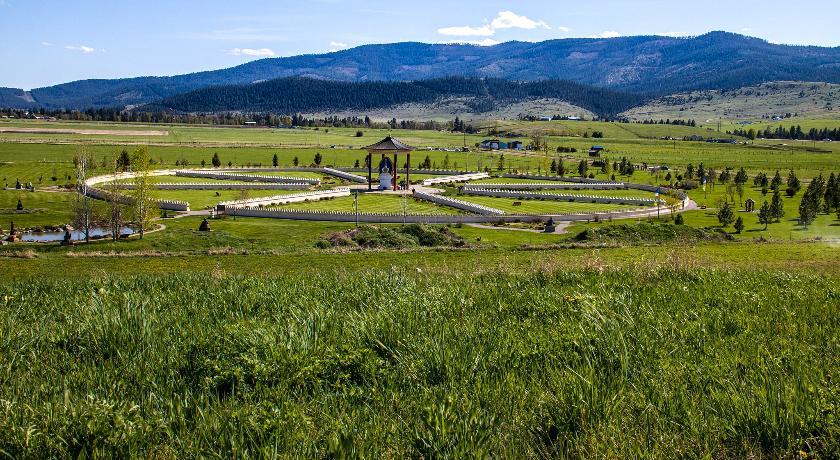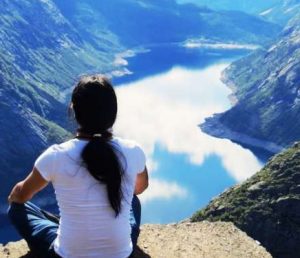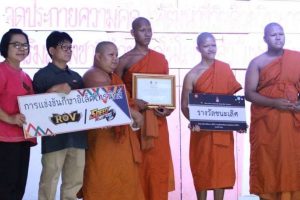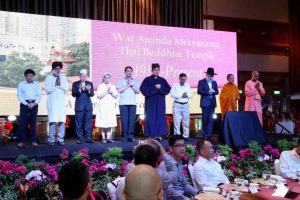
Buddhists at the Ewam Garden of One Thousand Buddhas, in northwestern Montana’s Jocko Valley, near the small town of Arlee, have joined with area residents and indigenous tribal advocates in voicing concerns about a proposed open-pit gravel mine and asphalt plant in the area.
The mine and plant facility is slated for a 60-hectare plot of land on the Flathead Indian reservation—home to the Confederated Salish and Kootenai Tribes. The site is also less than a kilometer from the Ewam Buddhist garden and peace center in an area surrounded by farmland.
Plans for the mine began last year, when Montana-based Riverside Contracting applied for a 20-year permit with the state’s Department of Environmental Quality (DEQ). Gravel is a key ingredient in highway construction and Riverside Contracting is one of the state’s largest highway construction companies.
The Montana DEQ announced on 25 January this year that they would accept public comment on the mine’s environmental assessment until 24 February. The DEQ has set up a webpage explaining the project and soliciting public feedback.
In a Facebook post dated 31 January , the Ewam Garden of One Thousand Buddhas sought help in raising awareness about concerns brought forth regarding the asphalt plant and gravel pit. In particular, they noted, there were environmental and cultural concerns which they felt the DEQ was not properly considering.
Local residents have created a non-profit group called “Friends of the Jocko” to educate the public on their reasons for opposing the mine. Concerns raised by the public include environmental impacts, noise levels from construction and large trucks moving in and out, dust and light pollution, increased road traffic, and property devaluation, to name a few.
“We all love the simplicity of life here, our agricultural way of life, being able to live here and have clean air,” said local resident and president of Friends of the Jocko, Jim Coefield. “This would take all of that away.” (Montana Free Press)
Coefield noted that a law passed by the state in 2021, known as HB 599, changed the way that the state permitted certain projects, effectively opening the door for gravel mine projects across the state. He added that Friends of the Jocko was at the forefront of pushing for more public input on these proposals.
“We’re kind of leading this fight because we got established early on,” Coefield said. “We have standing in a court of law, and we’re willing to flesh out all these issues.” (Montana Free Press)
A former chair of the Confederated Salish and Kootenai Tribal Council, Shelly Fyant, has also voiced her opposition to the project.
“When a project that recklessly affects water, air, wildlife, birds, fish, and human health is dismissed as temporarily inconvenienced, or having minimal or no impact, it’s a classic example of conflicting paradigms between capitalism and subsistence economies,” Fyant said. (Montana Free Press)
Fyant continued: “I mean, my God, that water goes into the Jocko River, and it’s like a mile from the school, so there will be air-quality issues that will affect the schoolchildren.” (Montana Free Press)
Below the proposed site lies an underground aquifer, which drains into the Jocko River. The Confederated Salish and Kootenai Tribe has spent considerable time and money restoring natural habitat along this river for the threatened bull trout.
Similar mines elsewhere have been known to affect water quality for surrounding communities, and dust from mining activity can contain silica, a known toxin associated with lung disease according to the US Centers for Disease Control and Prevention.
Fyant added that as a Salish woman, it was her duty to protect the land and environment.
“In our creation stories, the animals were preparing the Earth for the human beings, and they said humans are going to be the ones with the voice from now on,” Fyant said. “So we have the responsibility to speak for those who can’t, and, as a Salish woman, I take that responsibility very seriously.” (Montana Free Press)
See more
Jocko Valley residents challenge DEQ over asphalt plant, new law (Montana Free Press)
Opencut Mining Riverside Contracting Inc – Marvin Rehbein – 3415 Accepting Comments for Draft Environmental Assessment (Montana DEQ)
Friends of the Jocko
Ewam International
Related news reports from BDG
Vermont Tibetan Buddhist Center to Host Commercial Solar Array
Scotland’s Kagyu Samyé Ling Buddhist Monastery Petitions for Peace
Tibetan Buddhists Build Garden for Peace in Montana
Related features from BDG
Still Standing: Resistance and Resilience of the Standing Rock Sioux Nation
Restoration and Justice: An Interview with Dr. Natalie Avalos on Indigenous Spirituality and Buddhist Allies
Visions of Spiritual Ecology: Diane Barker’s Photography of Tibetan Nomadic Life in China
A Buddhist Garden of Peace in Rural Montana















The very definition of idiocy. Didn’t the Buddha state that nothing was forever, yet this people are concerned with what the land owner has a legal right to do? Idiots, all of them.